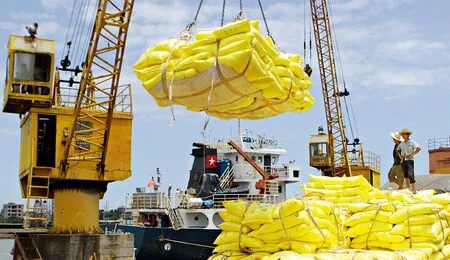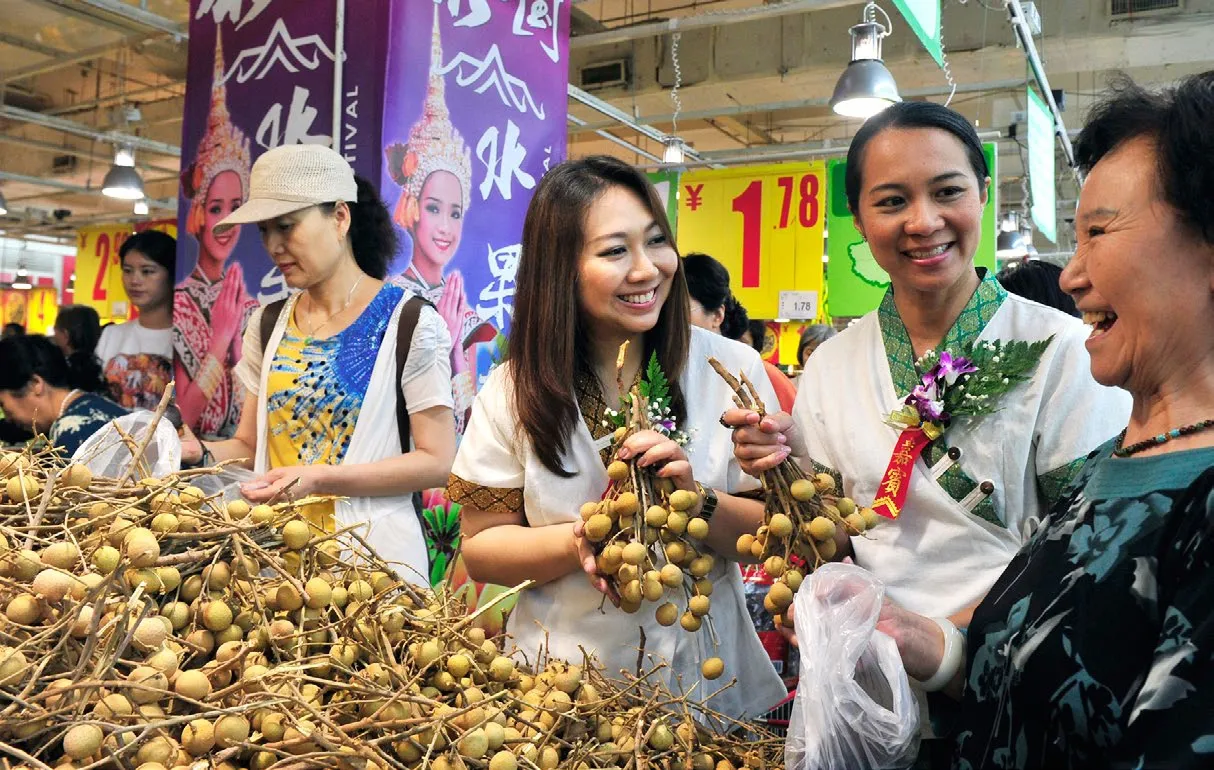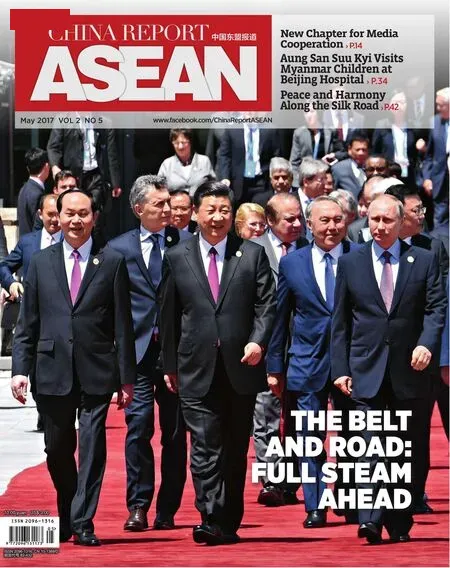Agricultural Cooperation Flourishes
By
Agricultural Cooperation Flourishes
ByWang Jiping

At Qinzhou port in south China’s Guangxi Zhuang Autonomous Region, workers load bags of fertilizer for shipment to Vietnam.
With complementary advantages, China and ASEAN have much to gain as the agricultural sector grows
China is famous for its advanced production technologies and high-quality agricultural products. Meanwhile, most ASEAN countries have agriculturebased economies, leading to a high demand for agricultural machinery and goods — as well as an area of complementarity in trade between China and ASEAN countries.
Against the background of the rapidly developing sphere of big data, the China-ASEAN Free Trade Area (CAFTA) is being advanced. What have China and ASEAN countries gained in terms of cooperation in agricultural production?
Li Dianping, Chairman of the China-ASEAN Chamber of Agricultural Commerce (CACAC), has played an integral role in the development of China-ASEAN trade cooperation.
Growing from Zero
Thanks to successful policies launched over the course of the past 26 years and improvement in the bilateral trade environment, China-ASEAN cooperation in agricultural means of production now flourishes, Li said.
In 1991, China and ASEAN established dialogue relations, which were later upgraded to a comprehensive dialogue partnership in 1996. In 2002, China and ASEAN signed a Framework Agreement on Comprehensive Economic Cooperation, announcing intentions to implementCAFTA. In 2015, CAFTA was further upgraded to bring more convenience to promoting bilateral trade.
The Asian Infrastructure Investment Bank (AIIB), established by China in 2015, engages in production capacity cooperation, the establishment of various industrial parks and the construction of railways between China and Thailand and China and Laos. All ASEAN member states are among the bank’s founding members.
"Thus, all the abovementioned provides opportunities for agricultural enterprises to export their products bilaterally and at the same time bring in what they need," Li said, adding that Laos' potassium fertilizer imported into China is a good example. Laos is home to a large amount of potash ore, which has attracted foreign investment. Of the foreign investors, nine are Chinese companies.
China has already made the agricultural means of production a market-oriented industry. Now, most ASEAN countries are promoting industrialization, urbanization and agricultural modernization.

A Thai fruit festival at a Beijing supermarket draws interest from prospective buyers.
"It means that bilateral cooperation will turn to focus on high-end technologies and exchanges of development thoughts and experiences, instead of simply trading agricultural products," Li said.
Importance of Industrial Parks
According to Li, China's agricultural production in recent years has become much more specialized, large-scale and modernized. The development of production services has accelerated. A number of large Chinese agricultural business operators would like to bring in more advanced technologies and, at the same time, they show an increasing willingness to invest internationally. Modern agricultural parks represent an excellent opportunity for such businesses.
"This has become a new way to broaden China-ASEAN cooperation across the entire agricultural industry, and surely cooperation in the field of the agricultural means of production will be included," Li said.
China’s southwestern Guangxi Zhuang Autonomous Region has worked with Brunei on the establishment of such parks since 2014. Hunan Province, in southern China, has worked with Laos to build parks principally focusing on the rubber industry and has also built industrial parks in Thailand. Thailand is home to a large number of agricultural resources including rubber, rice, orchid and cassava that are also important components for agricultural deep processing.
Li added that the discrepancy and complementarity in Chinese and ASEAN agricultural development provide the basis for bilateral cooperation. By investing in ASEAN markets, Chinese agricultural operators can bring in more high-quality agricultural raw materials to improve the quality and enhance the addedvalue of processing agricultural products. This leads to an eventual extension of the industrial chain to better satisfy Chinese consumers' needs and increase the global competitiveness of Chinese companies.
Smart Development
Discussing the future development of this industry, Li noted that e-commerce is crucial.
"In fact, developing e-commerce is not a pipe dream for China or its ASEAN counterparts, especially for China,” Li said. “China has large e-commerce companies like Alibaba, JD and GXYJ.com whose business branches extend into many sectors of the agricultural industry. In this way, operators related to each sector of the industrial chain will finally gain real benefits.”
These days, emerging agricultural companies in China and ASEAN are seeking big data related to soil, climate and other factors to optimize planting and production plans and help planters develop sustainably.

